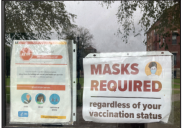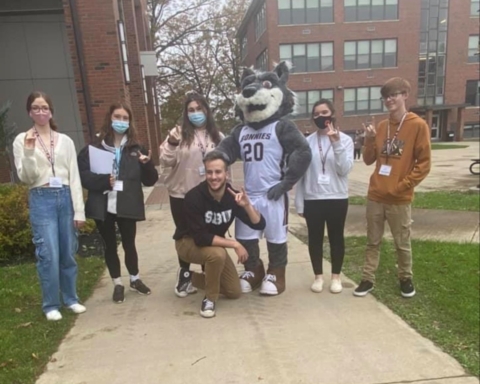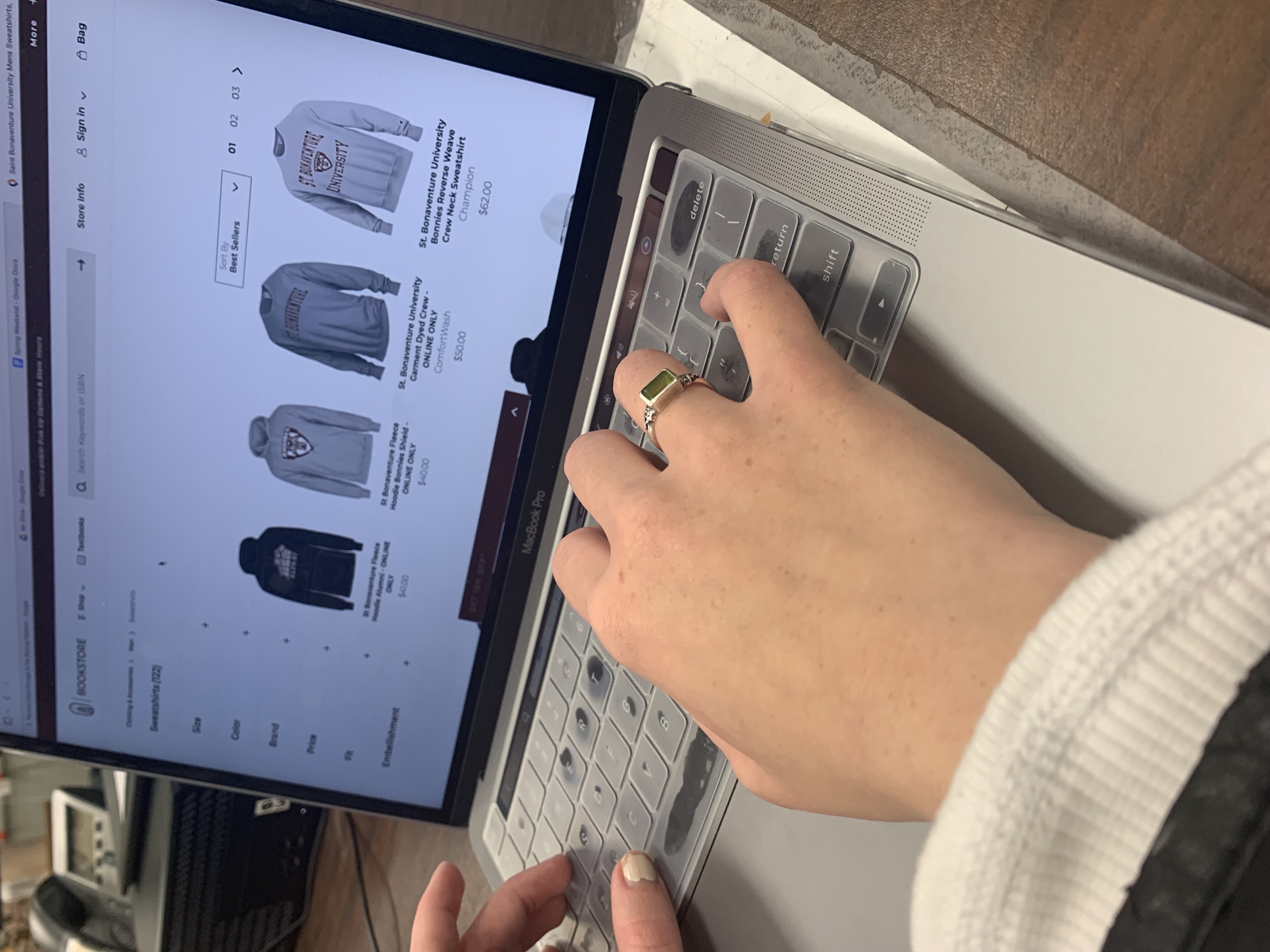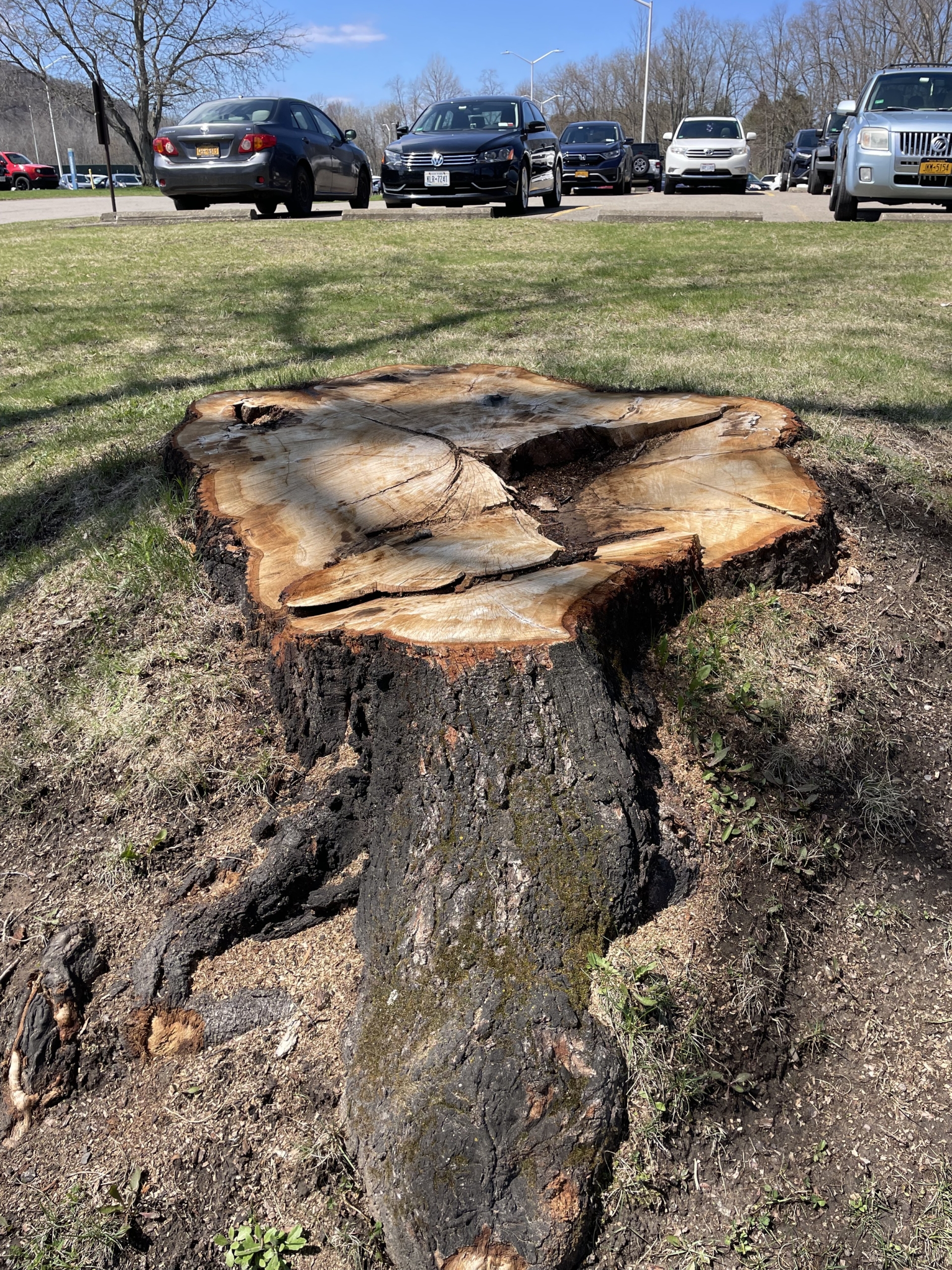BY CASSIDEY KAVATHAS, NEWS EDITOR
As a result of the HERO Act activated on Sept. 7 by New York Gov. Kathy Hochul, St. Bonaventure University has implemented two new COVID-19 protocols Monday. Students, faculty, staff and visitors regardless of vaccination status are required to wear masks inside all campus facilities. There are a few exceptions for vaccinated students such as inside residence halls, workspaces, the Richter Center if they are working out, running or playing a game and while eating inside campus dining facilities.
“I think they’re at least grateful that they – at least those vaccinated — don’t have to mask in their campus residences or when going to the Richter Center,” said Tom Missel, chief communications officer and co-chair of SBU’s COVID-19 Task Force. “Coupled with not having to mask at all outside and the reality that this was always a possibility as cases surged across the region and state, my guess is that it won’t be too big of an issue.”
All students and employees, regardless of vaccination status, must complete the daily health screening assessment form on my.sbu.edu. This policy was introduced for the first two weeks back on campus and was extended due to the HERO Act.
“There is always a possibility for additional protocols to be implemented, but with our high vaccination rate and the relatively low number of cases we’ve had on campus since late August, we’re hopeful that won’t be necessary,” said Missel. “I’ve learned never to say never in a pandemic.”
The HERO Act mandates new workplace health and safety protections in response to the COVID-19 pandemic. The purpose of the HERO Act is to protect employees against exposure and disease during a future airborne infectious disease outbreak. The governor designated COVID-19 as an airborne infectious disease under the HERO Act which requires all employers to implement workplace safety plans.
“I think it is a good policy given how contagious the Delta variant is and the number of breakthrough cases in vaccinated people.” said Dr. Mary Rose Kubal, Chair of the Department of Political Science. “It is the simplest and best way for us to stay face-to-face and protect the health of vulnerable community members.”
Many faculty members feel the same way about requiring masks in the classroom.
“I do know that many faculty were hopeful we would at least issue a mandate for classrooms given the vulnerability some of them felt in congregate settings due to health concerns,” said Missel.
Earlier in the semester, faculty had the option to implement mask requirements during their classes.
“For the first three weeks of class students were given the option of wearing masks and the vast majority chose not to wear them,” said Dr. Heather McDivitt, an assistant philosophy professor. “I hope that they will abide by the campus guidelines now and will correctly wear them in class.”
The transition back to masks has been smooth for the university. A majority of students have followed the new policy.
I required masks from the beginning of the semester in my classes and have not had any students refuse to wear them. I do have students who are wearing them incorrectly,” said Kubal. “I don’t really have the energy or the desire to police mask hygiene in my classes although I do realize that masks worn below the nose are completely worthless.”
For some subjects such as foreign language, the policy brings back challenges faced last year.
“I’m teaching a language so I have to pronounce words,” said Dr. Guy Imhoff, a French professor. “I do remove my mask so students can see my lips to help them understand the pronunciation of a word. Otherwise, it’s okay. It can be cumbersome to wear a mask but it’s worth the sacrifice.”
As of Sept. 22, The SBU COVID-19 tracker lists 30 overall cases since Jan. 1, two active cases and 28 recovered.
“We have a vaccination rate of over 90% for the entire campus community, so when we do get cases, it stands to reason that 8 or 9 out of 10 would be vaccinated. Given the impact of the Delta variant, that was to be expected,” said Del Rey M. Honeycutt, Associate Dean for Student and Community Wellbeing. “What’s important is that our positivity rate continues to be much lower than the county.”
As of Sept. 22, The county has 200 active cases and 6,464 recoveries. The vaccination rate for county residents who have received a first dose is 47.7%, and 43.6% for complete vaccinations. Cattaraugus County’s seven-day positivity rate was 5.5%.
“With the vaccination rate as high as it is on our campus, we are less likely to see any complications, as the majority of students will experience minor symptoms, which means we are not contributing to the healthcare worker burnout or an increased hospitalization rate,” said Honeycutt. “From a public health perspective, we need to be mindful of the rest of the county that is still largely unvaccinated, so I would encourage mask wearing when outside of campus.”
As of now, the indoor masking policy can only be altered by the University if the governor de-activates the HERO Act. The New York State Commissioner of Health will review the level of transmission of COVID-19 in New York and determine whether to continue this designation past Sept. 30.
“The best we can do to stay healthy this fall and winter is wear a mask, particularly if you have any cold symptoms, and wash our hands or use hand sanitizer frequently,” said Honeycutt.
kavathcj20@bonaventure.edu






